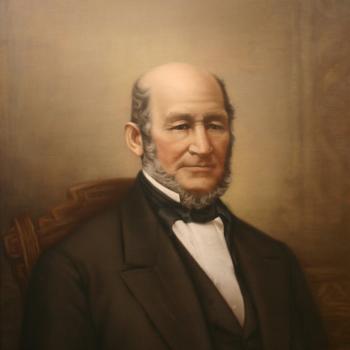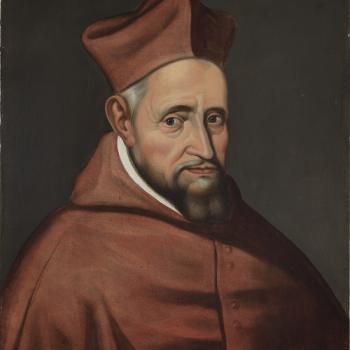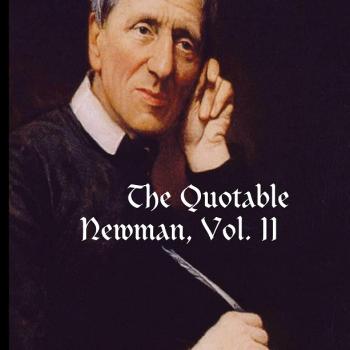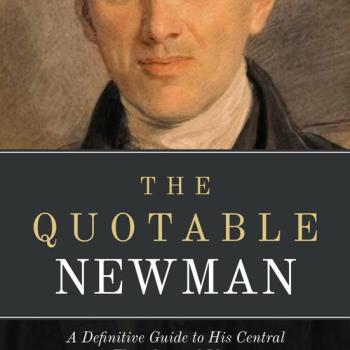
I drew this from an article in The Catholic World Report, of which it was a portion: “The reign of Pope Francis in retrospect: A Catholic World Report symposium” (4-22-25). Dr. Fastiggi is a good friend of mine, and I’ve asked him for his scholarly advice regarding many of my articles.
*****
In n. 204 of his Major Catechism (Catechismo Maggiore) of 1905, Pope St. Pius X raises the question: “Come deve comportarsi ogni cattolico verso il Papa” [How should each Catholic behave towards the Pope?]. He replies: “Ogni cattolico deve riconoscere il Papa, qual Padre, Pastore e Maestro universale e stare a lui unito di mente e di cuore” [Each Catholic should recognize the Pope as Father, Shepherd, and universal Teacher and be united with him in mind and heart].
I begin my reflections on the papacy of Pope Francis with these words of Pius X as a Catholic who has been teaching theology in Catholic institutions of higher education since 1985. During my 40 years of teaching, I’ve done my best to be united with three popes—John Paul II, Benedict XVI, and Francis—in mind and heart. It would be facile to dismiss the words of St. Pius X as “Ultramontanism” or “hyper-papalism.” It would likewise be facile to qualify Pius X’s response with the proviso: “as long as the Pope is teaching according to Catholic tradition.” It is Catholic dogma that “the Roman Pontiff is “the father and teacher of all Christians; and that to him, in the person of Blessed Peter, was given by our Lord Jesus Christ the full power of feeding, ruling, and governing the whole Church” (Council of Florence, Decree for the Greeks, A.D. 1439; Denz.-H, 1307).
Popes are human. They can sin, make prudential mistakes, and be negligent in their duties. In their ordinary Magisterium, they can teach something that is subject to future qualification, development, or even reversal. Despite the human limitations of each Roman Pontiff, we believe that
Divine assistance is also given to the successors of the apostles teaching in communion with the successor of Peter, and in a particular way, to the Roman Pontiff as Pastor of the whole Church, when exercising their ordinary Magisterium, even should this not issue in an infallible definition or in a “definitive” pronouncement but in the proposal of some teaching which leads to a better understanding of Revelation in matters of faith and morals and to moral directives derived from such teaching (Congregation for the Doctrine of the Faith. Donum Veritatis, 1990, n.17).
The Church holds that “magisterial decisions in matters of discipline, even if they are not guaranteed by the charism of infallibility, are not without divine assistance and call for the adherence of the faithful” (Donum Veritatis, n.17).
I bring forward these opening points to put into context my evaluation of the pontificate of Francis. During his twelve years in office, I’ve tried to look upon him as “the pope chosen for us” (electum nobis) for whom the Church prays at the Good Friday liturgy. God, in his providence, has chosen to lead his people through imperfect instruments. Both Moses and David committed murder; the first pope, St. Peter, denied our Lord three times. The frailty of God’s chosen leaders is a reminder “that the transcendent power belongs to God and not to us” (2 Cor 4: 7).
As the pope “chosen for us,” Francis brought forward some important initiatives for which I am extremely grateful. In particular, I am grateful for the special years he proclaimed: the 2015–2016 Extraordinary Jubilee of Mercy, which coincided with the 2014–2016 Year of Consecrated Life; the 2020–2021 Year of St. Joseph; and the current Jubilee Year of Hope. These special years have been accompanied by some excellent documents: the papal bull, Misericordiae Vultus (April 11, 2015) for the Extraordinary Jubilee of Mercy; the apostolic letter, Patris Corde, for the Year of St. Joseph; and the bull, Spes Non Confundit (May 9, 2024) for the 2025 Ordinary Jubilee of Hope. As Catholics, we have all been enriched by these papal reflections on mercy, the importance of St. Joseph, and the need for hope.
As the Roman Pontiff, Francis has left the Church with a collection of important documents that will be read and appreciated for many years to come. His first encyclical, Lumen Fidei (2013) was originally drafted by Benedict XVI so it should be considered a co-authored encyclical. It contains some deep insights into the life of faith within the Church and the dialogue between faith and reason. Francis’s second encyclical, Laudato Si` (2015), is a sustained reflection on the earth as our common home. It is grounded in Scripture and a sound theology of creation. His third encyclical, Fratelli Tutti (2020), takes up the themes of human fraternity and peace, and it stands in the great tradition of Catholic social teaching going back to Leo XIII. Finally, there is Dilexit Nos (October 24, 2024), Pope Francis’s encyclical on devotion to the Sacred Heart, which traces devotion to the Heart of the Savior from Scripture to recent times. In Dilexit Nos, Francis builds upon prior papal encyclicals on the Sacred Heart by Leo XIII (Annum Sacrum, 1899), Pius XI (Miserentissimus Redemptor, 1928) and Pius XII (Haurietis Aquas, 1956).
Although Pope Francis was considered “progressive” by many, his forms of piety were very traditional. In addition to his devotions to St. Joseph and the Sacred Heart of Jesus, he had a profound devotion to the Virgin Mary. Before and after his pastoral visits abroad, he would pray before the Marian icon, Salus Populi Romani (Health of the Roman People), located in the Basilica of St. Mary Major in Rome. His choice to be buried in this Basilica is an expression of his deep Marian piety. When speaking to a group of young people in Rome on June 29, 2014, Pope Francis said: “A Christian without the Madonna is an orphan.” Pope Francis also recognized the central role of Mary in the work of redemption. In his homily of January 1, 2020, he stated that “there is no salvation without the woman” (non c’è salvezza senza la donna).
In addition to his four encyclicals, Pope Francis published numerous apostolic exhortations and letters. Unfortunately, many of his apostolic letters never received much publicity. They deserve, though, to be read and better known. I especially appreciate his apostolic letters on the importance of the Christmas scene (December 1, 2019); on St. Jerome (September 30, 2020); on Dante Alighieri (March 25, 2021); on St. Francis de Sales (December 28, 2022); and on Blaise Pascal (June 19, 2023). Several of Pope Francis’s apostolic exhortations, such as Evangelii Gaudium (2013) and Amoris Laetitia (2016), are fairly well-known. More attention, though, should be given to Gaudete et Exsultate (2018) on holiness in today’s world; to Christus Vivit on young people; and to C’est la confiance (2023) on the 150th anniversary of the birth of St. Thérêse of Lisieux.
As he would be the first to admit, Pope Francis was not a perfect pope. During his 12 years as Pontiff, certain actions and documents of his received vigorous criticisms. His mistakes, I believe, were made without any ill intent. For example, it was a mistake for him to refer to the wooden statues thrown into the Tiber River as “pachamamas.” The Holy Father was only using the name for the statues that is employed by the Italian media. His mistake, however, led to a frenzy of accusations of idolatry that allegedly took place during an October 4, 2019, prayer service held in the Vatican Gardens. The narrative of “pachamama worship” has been thoroughly refuted, but some continue to use this accusation as a hammer to attack the Francis pontificate.
Catholics certainly have the right and sometimes the duty to express their opinions on matters that pertain to the good of the Church (see Lumen Gentium, 37 and canon 212§3 of the 1983 CIC). In my opinion, though, many critics of Francis went overboard. Certain criticisms challenged not only Pope Francis but papal authority itself. Now is not the appropriate time to rehash the controversies over chapter 8 of Amoris Laetitia, the inadmissibility of the death penalty, Traditionis Custodes, etc. I believe an orthodox and benevolent interpretation can and should be given to all of the teachings and decisions of Pope Francis.
In saying this, I am not “pope-splaining.” I am expressing my honest opinion after careful reading, study, and prayer. As with John Paul II and Benedict XVI, I’ve tried my best to be united in mind and heart with Pope Francis. I agree with what St. Pius X taught in 1905 about how Catholics should behave towards the pope. I hope to have the same unity of heart and mind with whoever is the pope chosen for us in the upcoming conclave.
Dr. Robert Fastiggi, Bishop Kevin M. Britt Chair of Dogmatic Theology and Christology, has been at Sacred Heart Major Seminary since 1999.
*
***
*
Summary: Professor of theology Robert Fastiggi offers thoughts on Pope Francis, some lesser-known things about him, & reflections on how he was so often tragically misunderstood.
















